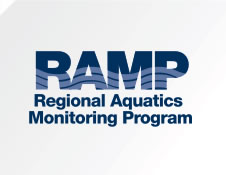The Building Blocks of Life
All living organisms need water, energy, carbon, nutrients and oxygen to stay alive, grow and reproduce. Living organisms differ in their specific requirements (e.g., by life stage or activity) and in the processes they use to secure these essentials.
Water
Living organisms are primarily composed of water and cannot function without it, although the resting stages for some organisms can survive with very little. In aquatic habitats, water is a source of oxygen (i.e., dissolved oxygen) and food (e.g., suspended particles of organic matter).
Energy
Almost all energy used by organisms is derived, directly or indirectly, from the sun; the exception includes some bacteria that derive energy from chemical sources (e.g., by oxidizing inorganic compounds such as sulphide). Plants use energy from sunlight to manufacture a range of sugars by the chemical process of photosynthesis. When animals eat plants, they make use of the energy 'fixed' by the plant. Organisms who cannot manufacture their own food using the sun's energy must consume other organisms to obtain carbon, energy and nutrients.
Carbon is a building block in the sugars, proteins, and fats that make up the tissues of all organisms. In plants, carbon dioxide and water, together with energy derived from sunlight, are incorporated into sugar molecules during photosynthesis. The sugars are stored in the plant body in the form of starch, but can be combined with other chemicals to form different types of molecules (such as protein). A schematic diagram of the carbon cycle is shown on the right.
Nitrogen and phosphorus are the most important nutrients for the growth of algae and aquatic plants, as they are often in short supply relative to the needs of these organisms. Other nutrients, such as potassium, iron, sulphur, and selenium, are also required, though these are usually abundant relative to the amount that algae and plants require.
Within aquatic environments, nutrients are derived from the erosion of minerals and soils within the basin, organic matter, or from human inputs. The addition of nutrients to aquatic systems—for example, from industrial outputs, sewage or agricultural runoff—can have major impacts on aquatic systems, sometimes leading to eutrophication (excess nutrients leading to excessive plant growth).
Oxygen is a basic requirement for most organisms, although there are some microorganisms that can grow in (or even require) environments without oxygen, while others can tolerate very low levels. Organisms that spend their entire life in water ‘breathe’ oxygen dissolved in the water (see Dissolved Oxygen).









